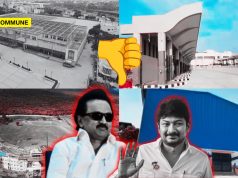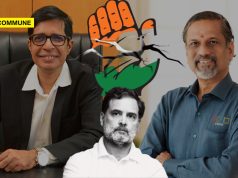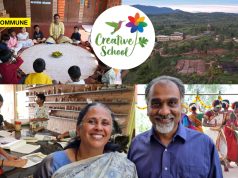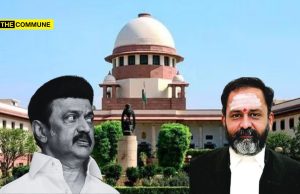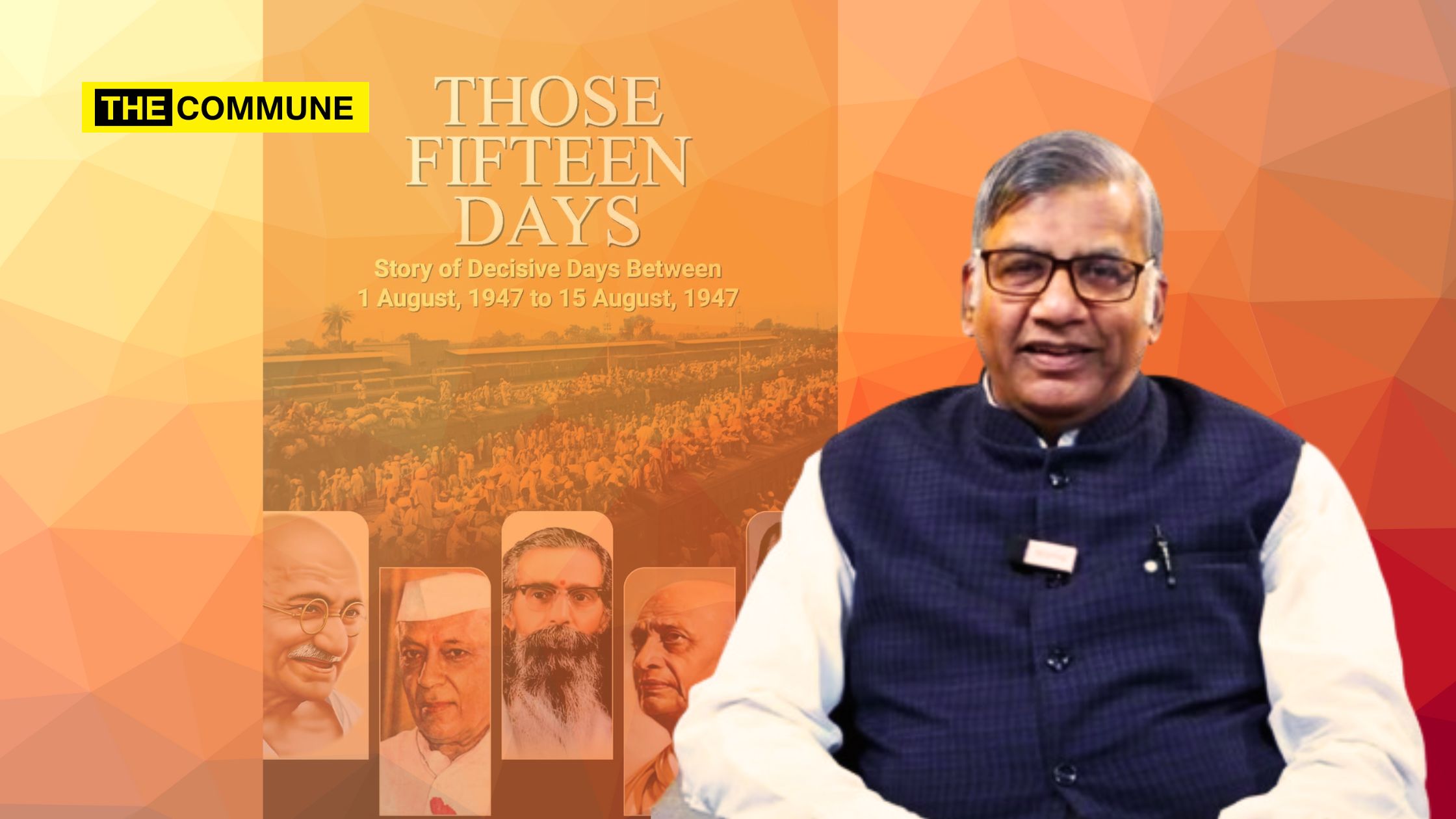
Prashant Pole is a man of fascinating contrasts – an engineer by training who harbours a deep passion for history. His journey from leading research and development in electronics to becoming a successful IT consultant might seem far removed from the world of historical research. Yet, precisely this unique background brings a fresh perspective to his exploration of India’s past.
Pole’s approach to history is marked by an unwavering commitment to uncovering the “real history” – events and narratives that have been overlooked or misrepresented in mainstream accounts. His most notable work, “Those 15 Days,” delves into the critical period leading up to India’s independence with meticulous detail and a quest for factual accuracy that borders on obsession.
As we delve into Pole’s thoughts on history, technology, and India’s future, we get a glimpse of a mind that constantly seeks connections between the past and the present, always with an eye towards building a stronger future for his beloved Bharat. Read on.
The Commune: Could you share a bit about your professional background?
Prashant Pole: Certainly! I started as an engineer and have held various positions across multiple sectors. Early in my career, I led research and development at Maharashtra Electronics Development Corporation (Meltron). Afterward, I worked with several corporate and multinational companies. At one point, I served as Vice President of an Indo-American joint project. Eventually, I ventured into entrepreneurship, establishing my own IT consultancy and company. Today, I primarily focus on consulting for telecom and IT companies, as well as providing IT solutions for several cooperative banks.
The Commune: As a technologist, what sparked your interest in history?
Prashant Pole: History has always been a passion of mine, even from a young age. I grew up reading a lot of historical books, mainly in Marathi and Hindi. While my career is rooted in technology, my fascination with history never waned. When I began writing, I realized many aspects of history haven’t been fully revealed or understood—what I call the “real history.” My interest lies in uncovering what truly happened, supported by references and actual facts. This quest for truth has heavily influenced the content of most of the books I’ve written, which are largely based on historical events.
The Commune: What inspired you to focus on “Those 15 Days” as a topic?
Prashant Pole: It all began around 1990 or 1991 when I started writing a small piece about the partition of India during Independence Day. As I delved into it, I realized there was so much about the partition that I didn’t know, which was surprising given the magnitude of the event. It’s a unique and tragic moment in world history—1.5 million people lost their lives, and over 120 million were displaced, leaving behind their homes, fields, and everything they knew. The lack of detailed information about such a significant event intrigued me, so I started researching more deeply. I discovered that by focusing on the last 15 days leading up to independence, from 1 August to 15 August 1947, we could truly understand the decisions and actions of the leaders of that time. Capturing those crucial days, factually and pictorially without injecting personal opinions, would allow readers to see the reality of who we entrusted with our nation. That’s how the concept of “Those 15 Days” was born.
The Commune: You initially published “Those 15 Days” as a series of articles. What made you decide to turn it into a book?
Prashant Pole: The series originally appeared in a Marathi magazine called Ekata, which was published in Pune. Every month, a new episode covering one day from those 15 critical days leading up to Independence was published, and the readers began to engage with it. Their positive feedback encouraged me to explore the idea further.
Some friends suggested releasing the series on social media during the first half of August, and the response was overwhelming—it went viral quickly. I shared it in both Marathi and Hindi, which expanded its reach even further. Seeing its success, my publisher, who had previously published my book Treasure Trove of Indian Knowledge (Bharatiya Gyan Ka Khajana), proposed turning the series into a full book. That’s how the book Veh Pandra Din came to be in Hindi, Those 15 Days in English, and Veh Pandra Divas in Marathi. Initially, it was published in these three languages, and today, it’s available in nine languages.
The Commune: In India, where there is no shortage of secular sources, how challenging was it to conduct research for your book?
Prashant Pole: That’s a very insightful question. When I had the concept for the book in mind, I knew the research would be challenging, but I didn’t anticipate just how difficult it would be to find reliable references. Most of the sources I encountered were either heavily biased, written with a non-historical, secular perspective, or overly emotional, lacking in factual accuracy. This made it incredibly hard to find authentic, factual references.
As I delved deeper into my research, I realized that many references available online, even on reputable platforms like Google, were incorrect. This meant that every single reference I used in the book had to be meticulously cross-checked. I can confidently say that every event and incident mentioned in the book is based on fact—there is absolutely no fiction involved. The process was long and painstaking; it took me over 10 to 15 years of research to write this book. In the final two years before I began writing, I immersed myself completely in that era. I even started thinking in terms of miles instead of kilometers, and I consulted historical records like the Panchang to ensure every detail was accurate. For example, if I mention that the sunrise on a particular day was at 6:17 AM, you can be certain that it was exactly at that time on that day. I took all possible precautions to ensure the historical accuracy of every detail in the book.
The Commune: You’ve provided a very vivid description of events in “Those 15 Days.” Can you elaborate on how you gathered and verified the details?
Prashant Pole: Absolutely. I made it a point to gather all the relevant information to accurately describe each incident or event in the book. Everything I’ve written is backed by solid proof, whether it’s testimonials or reliable references. For example, one significant event I highlighted was the visit of Lakshmibai Kelkar, the then Pramukh Sanchalika of the Rashtra Sevika Samiti, to Karachi on the very day Pakistan was born. This event hasn’t been properly acknowledged in our history.
Today, we often discuss women’s empowerment but imagine the courage it took 78 years ago for a woman to visit Karachi, which had just become the capital of Pakistan amidst widespread riots. It was an incredibly dangerous time, especially for women, given the circumstances we’re all aware of. Yet, Lakshmibai Kelkar had the bravery and confidence to go there, hold a meeting, and inspire the women of that time. This kind of courage should be highlighted and celebrated.
Similarly, the work that the RSS did during the partition was remarkable. Many RSS swayamsevaks sacrificed their lives to save others, and yet, this is not widely known. The RSS never seeks credit for these actions, but that doesn’t mean others shouldn’t recognize and talk about these sacrifices. The contributions made during those unstable days deserve acknowledgment and appreciation.
The Commune: What are your favorite topics to research and write about, and why?
Prashant Pole: As I mentioned earlier, I’m passionate about uncovering the actual history that often gets overlooked or misrepresented. One of my favorite areas of study is the Bhartiya Gyana Parampara – the Indian Knowledge System (IKS), as it’s commonly called these days. I spend a lot of time working on this because it represents a vast and rich tradition that’s crucial to understanding our heritage.
Additionally, I focus on various historical topics where the real story hasn’t been fully told. Much of what we’ve learned in schools and colleges has been distorted. I believe it’s essential for people to know the true history, backed by proper facts and figures. This drive to bring the authentic narrative to light is what I find most fulfilling and what I consider my favorite subject to explore.
The Commune: What lessons should modern-day Bharat learn from the events described in Those 15 Days, especially considering the current situation in Bangladesh?
Prashant Pole: This is an important question. When we reflect on the partition, we must ask if it was truly necessary. The answer is no. The partition was not inevitable but was largely the result of the Congress leadership surrendering to the demands of the Muslim League, particularly after the Direct Action Day and the horrific massacres that followed in Bengal and Noakhali in August 1946. Congress, at that time, failed to stand firm against these violent tactics, leading to the eventual partition.
Looking at today’s scenario, Pakistan is a fragile state, teetering on the edge of dysfunction. If it weren’t for China’s support, regions like Balochistan might already have gained independence. The creation of Pakistan was fundamentally flawed because it was not a country born out of logical reasoning but rather out of religious division. The fact that Bangladesh broke away from Pakistan in 1971 further underscores that religion alone cannot hold a nation together.
Dr. B.R. Ambedkar argued that partition might be necessary because he believed Hindus and Muslims were too different to coexist peacefully. However, he also insisted that if partition were to happen, all Hindus should migrate to India, and all Muslims should move to Pakistan. This migration did not occur as envisioned, leading to the ongoing persecution of Hindus in Bangladesh, as seen historically in 1947, during the 1971 war, and even now in 2024.
Today, we see that while the Hindu population in Pakistan and Bangladesh has dwindled drastically, the Muslim population in India has increased. This raises questions about the long-term stability of these regions. The lesson for Bharat today is clear: those who prioritize the nation must unite strongly. For India to remain strong and stable, Hindus must come together, ensuring that the country is fortified against internal and external challenges.
The Commune: What’s next on your agenda? What are you working on now?
Prashant Pole: I’m currently working on two books. The first is the second part of the Treasure Trove of Indian Knowledge (Bhartiya Gyan Ka Khajana). The first part of this book has been quite popular and is available in Marathi, Gujarati, Hindi, and English. The second part will also be released in these four languages soon.
My other project is a book titled Changing Bharat – Badalta Bharat. This book will also be available in the same four languages. In Badalta Bharat, I’m exploring the journey of India, from its glorious past to the challenges it faced due to invasions by Muslims and British colonizers. Despite the setbacks post-independence, we missed many opportunities, but in the last five to ten years, our country has been progressing rapidly. India is rediscovering its identity, and if we continue on this path, we’ll become a very strong nation in the world. That’s the essence of Badalta Bharat.
The Tamil translation of Vo Pandrah Din, Andha 15 Naatkal is available for purchase at the Vijayabharatham Prasuram website.
Subscribe to our channels on Telegram, WhatsApp, and Instagram and get the best stories of the day delivered to you personally.

